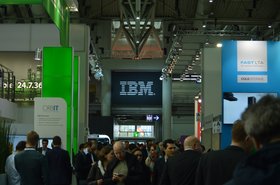AMD and Penguin Computing will deliver a combined seven petaflops of computing power to New York University (NYU), Massachusetts Institute of Technology (MIT) and Rice University.
The computing clusters will be used in the ongoing fight against Covid-19.
Every petaflop helps
“High-performance computing technology plays a critical role in modern viral research, deepening our understanding of how specific viruses work and ultimately accelerating the development of potential therapeutics and vaccines,” Dr. Lisa Su, president and CEO of AMD, said.
“AMD and our technology partners are proud to provide researchers around the world with these new systems that will increase the computing capability available to fight Covid-19 and support future medical research.”
AMD will fund the clusters, and provide the Epyc CPUs and Radeon Instinct GPUs, while Penguin Computing will build and deploy the systems. Gigabyte will also supply G290-Z21 compute nodes, while data center company DataBank will donate space for a small computing pod available over the cloud.
"The computing resources donated by AMD will be put to use by NYU researchers from a wide range of disciplines in projects to address the many important facets of the Covid-19 crisis, including: discovery of drugs that may be therapeutic for Covid-19 and future SARS virus mutations, retrieval of relevant research results from the vast biomedical literature, analysis of medical imaging for screening of patients, and analyzing political attitudes and voting behavior in response to financial hardships," Russel Caflisch, director of the NYU Courant Institute of Mathematical Sciences, said.
Daniel Huttenlocher, dean of the MIT Schwarzman College of Computing, added: "Across MIT we are engaged in work to address the global Covid-19 pandemic, from that with immediate impact such as modeling, testing, and treatment, to that with medium and longer-term impact such as discovery of new therapeutics and vaccines.
"Nearly all of this work involves computing, and much of it requires the kind of high-performance computing that AMD is so generously providing with this gift of a Petaflop machine."
AMD and Penguin previously upgraded the unfortunately named Corona supercomputer, and the chip designer said it would donate $15m of supercomputing equipment.
The company is part of the growing Covid-19 HPC Consortium, which currently features around 483 petaflops of power across 5m CPU cores and 50k GPUs.
In the next issue of the DCD>Magazine, out soon, we talk to the researchers, government officials, and corporate heads spearheading the Covid-19 HPC Consortium. Subscribe for free today.




